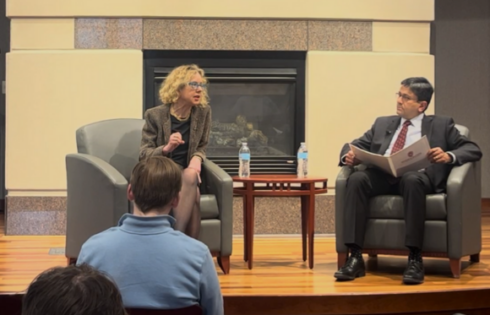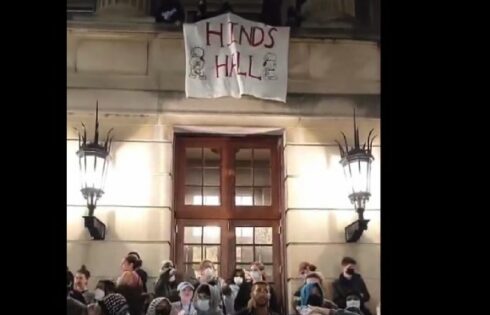
Writing in The Atlantic, Columbia University linguistics Professor John McWhorter reports that in a three-week period earlier this summer, he counted about 150 emailed messages from peers across the nation who expressed fear for their jobs and reputations for dissenting — even slightly — with progressive orthodoxies.
His piece offers several anecdotes, including these:
One professor notes, “Even with tenure and authority, I worry that students could file spurious Title IX complaints … or that students could boycott me or remove me as Chair.” I have no reason to suppose that he is being dramatic, because exactly this, he says, happened to his predecessor.
A statistics professor says: “I routinely discuss the fallacy of assuming that disparity implies discrimination, which is just a specific way of confusing correlation for causality. Frankly, I’m now somewhat afraid to broach these topics … since according to the new faith, disparity actually is conclusive evidence of discrimination.”
… an assistant professor reports having recently just survived an attack by a cadre of scholars who are “unspeakably mean and disingenuous once they have you in their sights,” regularly “mounting PR campaigns to get academics and grad students fired, removed from programs, expelled from scholarly groups, or simply to cease speaking.”
Being nonwhite leaves one protected in this environment only to the extent that one toes the ideological line. An assistant professor of color who cannot quite get with the program writes, “At the moment, I’m more anxious about this problem than anything else in my career,” noting that “the truth is that over the last few years, this new norm of intolerance and cult of social justice has marginalized me more than all racism I have ever faced in my life.” …
One professor committed the sin of “privileging the white male perspective” in giving a lecture on the philosophy of one of the Founding Fathers, even though Frederick Douglass sang that Founder’s praises. The administration tried to make him sit in a “listening circle,” in which his job was to stay silent while students explained how he had hurt them—in other words, a 21st-century-American version of a struggle session straight out of the Cultural Revolution.
McWhorter points out in his conclusion that these anecdotes are the tip of the iceberg:
… let’s face it: Half a dozen reports of teachers grading Black students more harshly than white students would be accepted by many as demonstrating a stain on our entire national fabric. These 150 missives stand as an articulate demonstration of something general—and deeply disturbing—as well.
IMAGE: Arts Illustrated / Shutterstock
Like The College Fix on Facebook / Follow us on Twitter




Add to the Discussion